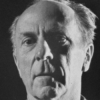Edward Weston

Edward Weston
Edward Henry Westonwas a 20th-century American photographer. He has been called "one of the most innovative and influential American photographers…" and "one of the masters of 20th century photography." Over the course of his 40-year career Weston photographed an increasingly expansive set of subjects, including landscapes, still lifes, nudes, portraits, genre scenes and even whimsical parodies. It is said that he developed a "quintessentially American, and specially Californian, approach to modern photography" because of his focus on the people and...
NationalityAmerican
ProfessionPhotographer
Date of Birth24 March 1888
CityHighland Park, IL
CountryUnited States of America
My own eyes are no more than scouts on a preliminary search, for the camera's eye may entirely change my idea, even switch me to different subject matter. So I start out with my mind as free from image as the silver film on which I am to record, and I hope as sensitive.
...through this photographic eye you will be able to look out on a new light-world, a world for the most part uncharted and unexplored, a world that lies waiting to be discovered and revealed.
One does not think during creative work, any more than one thinks when driving a car. But one has a background of years - learning, unlearning, success, failure, dreaming, thinking, experience, all this - then the moment of creation, the focusing of all into the moment. So I can make without thought, fifteen carefully considered negatives, one every fifteen minutes, given material with as many possibilities. But there is all the eyes have seen in this life to influence me.
My own eyes are no more than scouts on a preliminary search, or the camera's eye may entirely change my idea.
Why limit yourself to what your eyes see when you have an opportunity to extend your vision?
The camera sees more than the eye, so why not make use of it?
Consulting the rules of composition before taking a photograph, is like consulting the laws of gravity before going for a walk.
I start with no preconceived idea - discovery excites me to focus - then rediscovery through the lens - final form of presentation seen on ground glass, the finished print previsioned completely in every detail of texture, movement, proportion, before exposure - the shutter's release automatically and finally fixes my conception, allowing no after manipulation - the ultimate end, the print, is but a duplication of all that I saw and felt through my camera.
When money enters in - then, for a price, I become a liar - and a good one I can be whether with pencil or subtle lighting or viewpoint. I hate it all, but so do I support not only my family, but my own work.
Modern Art is being used to index me. Surely it was a source but photographers have influenced Modern Art quite as deeply as they have been influenced, maybe more. Anyway painters don't have a copyright on M. A. We were all born in the same upheaval.
Restricting too personal, and therefore prejudiced, interpretation leads to revolution - the fusion of an inner and outer reality derived from the wholeness of life - sublimating things seen into things known.
If I am interested, amazed, stimulated to work, that is sufficient reason to thank the gods, and go ahead!
Results alone should be appraised; the way in which these are achieved is of importance only to the maker.
Dare to be irrational! - keep free from formulas, open to any fresh impulse, fluid.